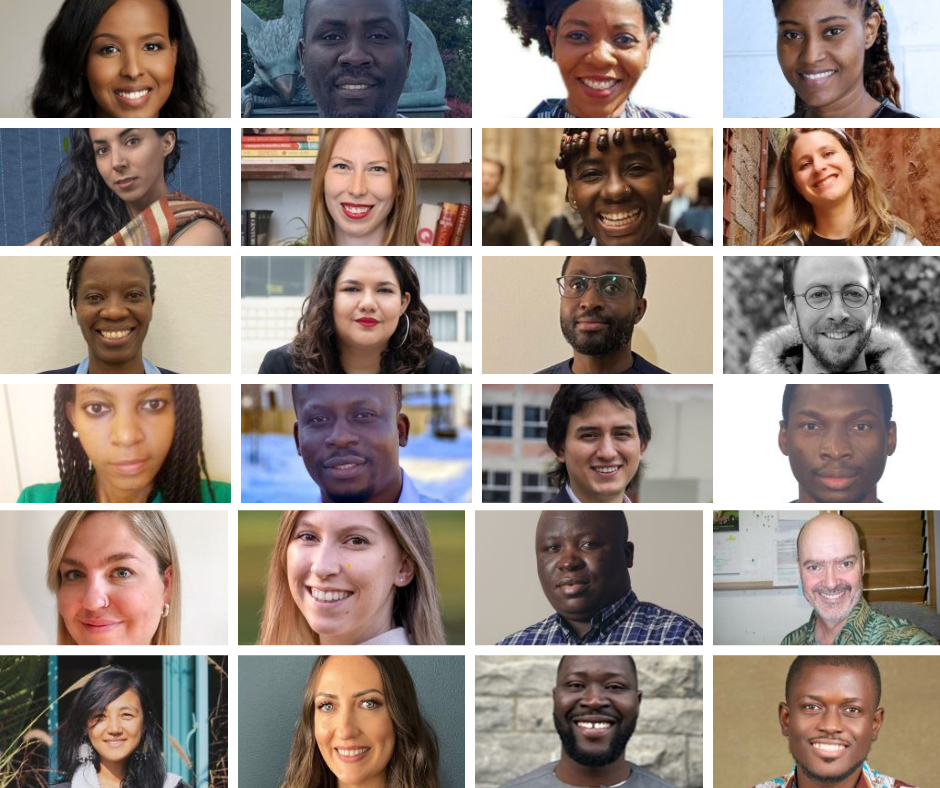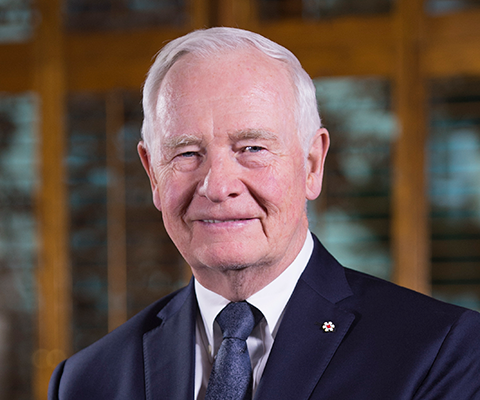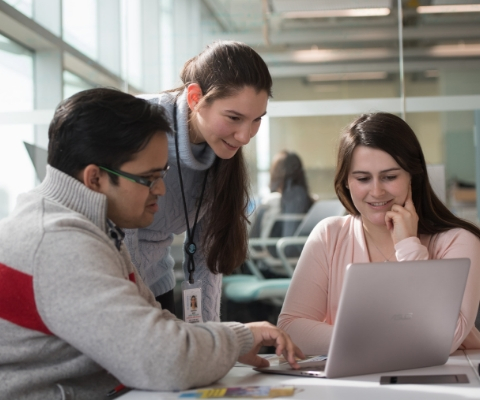Smart Skills for a Smarter Canada – speech by Paul Davidson

Remarks by Paul Davidson, president of Universities Canada to the Winnipeg Chamber of Commerce, November 3, 2015
Check against delivery
It is great to be back in Winnipeg. This is my third visit in the last six months.
This is one of Canada’s great cities. There is an outstanding quality of life, deep sense of community, and people who look forward. I am thinking of business leaders like Paul Soubry, Philanthropic leaders like Art de Fehr, and cultural leaders like Jeff Herd. (I could spend my full 20 minutes listing them).
And Annette, it is great that you are back in Winnipeg.
You are part of an impressive revitalization of Winnipeg that sees top talent choosing to be live and work here while being engaged nationally and internationally.
I saw The Forks on my way in and wonder what a touchstone that must be for you, or indeed anyone who’s been away.
For generations, for thousands of years, this has been a gathering point – of ideas, of energy of commerce and of culture. The Forks has also served as a transition point, after a long journey, it was a place to rest; a place to take stock, trade with others, replenish and move forward.
And it continues to be a place of inspiration. A place with a can-do attitude that is making the rest of the country sit up and take notice.
At these forks, Manitobans decided they wanted their NHL team back, and they got it.
Manitobans saw this city as a perfect spot for the new national Museum of Human Rights, and now it’s a reality.
The University of Manitoba took on the responsibility and the honour of housing the National Centre for Truth and Reconciliation. And later today it will open, a site of national importance to how we move forward as a country.
I am very honoured to be included in a dialogue on reconciliation as part of those ceremonies later today.
And, in perhaps the most important contribution of the past year, not just to this country, but to the entire world, it was in Winnipeg that researchers developed the ground-breaking ZMapp Ebola vaccine.
This vaccine was proven so effective in preventing the spread of Ebola that clinical trials were stopped, and general distribution started immediately. It is saving tens of thousands of lives.
And it happened in Winnipeg – through brilliant research, collaborative funding (including universities, government, the private sector and international NGOs), partnership in conducting the work that included not only science but social science; and sheer tenacity – that can do attitude.
And you know, the world took notice. In media around the world, ZMapp is now known as the “Canadian Vaccine”. But here in Canada, the news of this ground breaking research and collaboration, with dramatic human impact at an international scale, dribbled out on a Friday afternoon in July when most of us were at the lake. We need to trumpet this success because it speaks to our best strengths as a country.
And even more recently, Dr. Art McDonald received that incredible early morning phone call from Sweden. No, not a hockey trade; but that he would share this year’s Nobel Prize in Physics. His world-leading work at the Sudbury Neutrino Observatory has opened a whole new field of inquiry about some of the most basic questions about the nature of our world. Again this Nobel goes to an individual, but he is the first to acknowledge that it took teams of graduate students, international collaborators, and long-term investments to secure this success.
That observatory, by the way, is a partnership of five Canadian universities. Our institutions of higher learning know the value of collaboration.
ZMapp and SNOLab are powerful examples of how Canada’s universities reach beyond their institutions and across borders to put the best minds to the biggest challenges.
Our universities are committed to doing even more through partnerships and collaboration. And I want to speak with you about that today.
But what do a vaccine for Ebola and a Nobel Prize in Physics have to do with the skills we need here in Winnipeg?
In the media, we often hear cries of a skills crisis, of a mismatch between what universities are doing and what the “real” economy needs.
This summer we reached a demographic tipping point – there are now more Canadians over the age of 65 than there are people under the age of eighteen..
Right now, there are one million students pursuing their first degree. The experiences they have and skills they acquire will largely determine Canada’s prosperity for decades to come.
That’s why Canada’s universities are listening carefully to what Canadians say they expect from us, and why we are reaching out to leaders in business, philanthropy and culture to see how we can work together to achieve even greater results for Canada.
POLLING RESULTS
We polled 2,000 Canadians from across the country and we are encouraged to know that Canadians have very positive feelings about our universities.
Canadians told us they understand why universities are important. They know universities are good for students, build stronger communities and shape a better country.
Eight out of 10 of respondents had positive views of Canadian universities.
A large majority recognized the essential role they play in advancing Canada’s economic growth and acknowledged the importance of the research our universities conduct.
An impressive 87 percent agreed that Canada needs to invest in building strong universities for a strong Canada.
We know, and you know, that the country’s future success depends on the strength of our universities and the valuable research and education we perform. But it’s wonderful to hear that everyday Canadians know that as well.
The polling was done by Abacus Data – headed by Bruce Anderson, who appears on CBC’s “At Issue” panel.
It showed that Canadians value universities for fostering the longer view for our students and communities, developing bigger ideas and developing our next generation of leaders.
Sixty-five percent agreed that the most important role of a university education is developing adaptable, lifelong learners and preparing students to contribute to society.
And we believe that ALL students who have the ability to succeed at university, should have the opportunity to do just that.
INDIGENOUS EDUCATION
That means we have to build on the impressive work being done to ensure access and success for First Nations, Metis and Inuit students. Canada’s universities have over 350 collaborations with indigenous communities that are working.
For example, starting next fall students at the University of Winnipeg will be required to take a course focused on the rights, traditions, history, or governance of indigenous culture in order to graduate. That, by the way, was an initiative spearheaded by UofW’s students, and I know Dr. Trimbee is as proud as I am of their vision.
The University of Winnipeg is also working with the city’s Indigenous and inner-city communities to provide opportunities for children, youth and families and break down barriers to postsecondary education.
Through the Wii Chiiwaakanak Learning Centre, the university provides free and open access to computers, as well as a number of free educational and cultural after-school and summer programs. More than 1,700 community members use the Centre each month.
That’s fantastic.
And we can do more.
Today, fewer than 10 percent of Indigenous people between the ages of 24 and 64 have a university degree. That’s one-third the rate of non-Indigenous Canadians.
Canada’s universities are committed to enhancing educational opportunities and academic success for Indigenous students and fostering reconciliation across Canada.
In June of this year, University Canada’s 97 members adopted 13 new principles on Indigenous education.
These principles acknowledge the unique educational needs of Indigenous peoples in Canada, and promise action to increase opportunities for success.
I’ve brought with me copies of those principles, which I invite you to take with you today.
Universities help ALL students achieve their potential by continually innovating teaching and learning.
CO-OPS AND INTERNSHIPS
Thousands of students are hard at work right now in lecture halls, labs and tutorials just down the road; learning new ways to solve problems; methods we couldn’t even imagine 10 years ago, preparing for a world we might not recognize in another decade.
They have much to offer the private sector and community organizations.
Last year we did a survey of employers at small and medium-size enterprises about experiential learning. Employers told us that co-op and internship students add real value to their organizations. They said university students contribute new ideas to their teams and are effective in their work.
The Canadian Chamber of Commerce also recognizes the value of having students on site. In a recently released skills report, the Chamber recommends government provide a financial incentive for employers to offer co-op placements to students, with a focus on smaller enterprises. And we welcome the Chamber’s leadership on this.
I’m sure David, Annette and Cheryl would be pleased to introduce you to some exceptionally bright students who will get the job done, be eager to learn, bring new skills and energy to your organizations, and perhaps become your next full-time hire. I want to pause and remark that there is a tremendous spirit of collaboration amongst all the universities in Manitoba – and I know that David, Annette and Cheryl meet regularly with Girvan and Gabor to optimize their work together across the province.
Students see the value of experiential learning too, and have jumped at the opportunities. They are savvy and want an edge in the job market and an in-the-community learning experience.
More than half of all students across all disciplines complete some form of experiential learning as part of their undergraduate degree. But even at that level, it doesn’t satisfy the student demand.
We need more employers to step up.
I encourage you to make full use of this valuable resource. Bring this tremendous source of new knowledge, skills and energy to your organizations, and join us in encouraging our partners in government to support this effort, as the national Chamber has.
STUDENT MOBILITY
Individually and as a country, we all do better with a wider view of the region, the province, the country and, indeed, the world. Part of being a well-rounded citizen prepared with the right skills means knowing the world.
That’s why 96 percent of Canadian universities ensure internationalization is integrated into their strategic plans.
Our business survey also showed that two out of three employers in Canada believe the country is in danger of being left behind by fast-growing countries such as China, India and Brazil, unless young Canadians learn to think more globally.
How can they do that? For starters, by getting on an airplane.
Our universities offer exchange programs global internships and other opportunities for international learning experiences.
But consider this: Just 3.1 percent of university undergraduates leave the country for educational experiences each year. And most who do, head to the U.S., the U.K., France, Germany or Australia. Few go to high-growth, emerging economies such as China, India or Brazil.
In fact, just 10 percent even leave their home province to study elsewhere in Canada.
Why? We have looked at the barriers and we are addressing them.
Canada’s universities are working together to make it easier for students to know Canada and know the world.
Canadian universities are looking at making credit transfers smoother. They’re working with faculty to encourage students to boost their international experience. And they’re providing financial incentives through bursaries.
Several of Canada’s university and business leaders worked on an international education panel in 2012 that recommended a new program be developed to send 50,000 students abroad each year. We’re not there yet. Wouldn’t that be a terrific goal for 2017, when Canada celebrates our sesquicentennial?
Canada needs more students to make a passport part of their school supplies. In an increasingly competitive world, we need our workforce to understand the difference between 100 pounds and 100 yuan, and know what that looks like on a purchase order or a sales record.
More than 80 percent of SMEs who hire recruits with international and intercultural experiences say it enhances the company’s competitiveness.
It matters to students, it matters to your businesses, and it matters to Canada in today’s global economy.
CALL TO ACTION
You care about developing skills in young people that will be with them for life.
You care about finding the talent you need for today and for tomorrow.
You care about the quality of life in this great city, and
You care about keeping Winnipeg, Manitoba and Canada competitive.
I invite you to join with university students, faculty and leaders to imagine an even stronger partnership. To engage more closely with students by taking on more co-op students; to fully use the world leading research facilities that exist, and collaborating with a new generation of faculty who are eager to work with you.
The thing about the Forks is not so much that it was a stopping point, but that it was a place to replenish and relaunch. Winnipeg is on its way. You are paddling hard and you’re making great progress
Now is the time to utilize more fully what your universities have to offer.
I believe this community can be an example to rest of Canada of how business leaders, a city and its universities can come together, leverage their considerable assets, and realize a community’s true potential.
Thank you
-30-
About Universities Canada
Universities Canada is the voice of Canada’s universities at home and abroad, advancing higher education, research and innovation for the benefit of all Canadians.
Media contact:
Lisa Wallace
Assistant Director, Communications
Universities Canada
[email protected]
Tagged: Co-ops and internships, Indigenous education, Research and innovation, Study abroad




